#with disregard for my own health I binge watched three seasons of television in the last two days...
Explore tagged Tumblr posts
Note
Hello! Lesbian from the last ask about qprs again! Your ramblings were delightful as expected, it definetely gave me something to think about (as someone who has also identified with aroace for a while before adopting my current "label"). If you're still okay with answering questions, I'd like to know more about your thoughts on the aroace spectrum itself? I remember there being some discourse in the community about whether or not gray area aroaces were valid or not (or something like that... I don't care enough now to remember lol). But just generally, what do you think of the concept of an aroace spectrum? (also can I be 🪼anon pls? I'm pretty sure I'll keep visiting your inbox in the future sorryyyy)
hi again :0 !! honored to get a named anon and I did not know there was a jellyfish emoji so that was also fun to learn lmao, and do not worry I love having stuff in my inbox it's like a little writing prompt for me sometimes and I really love that!
onto the actual question in the ask (which I am also very happy to answer genuinely I enjoy yapping far too much so this is very self indulgent)
it is also very long... I hope you enjoy more long paragraphs !!
similar to how I feel about qprs, I think a lot of the labeling and identification that comes from the concept of the aroace spectrum is just unnecessary and puts far too much focus on the idea of labeling yourself anyways. I mean, does it exist? yeah, it exists since you could define many things as a spectrum if you want to. and clearly, there are people who have such experiences that can be labeled on the spectrum, micro-labels do have some point of origin. but what it always comes down to for me is: does it matter? does it change anything to have a label versus not having one? does it actually help to have a label?
because, on the one hand, I totally get wanting to know that your experiences aren't isolated, that there are others who feel similarly. especially since we live in a world that has such a deluge of media that reinforces a very slim view of what the human experience looks like, and that there are a lot of traditionalist societal norms in the US that dictate the "normative" way to think about sexuality and romance, if you deviate from that norm, it can be incredibly isolating. that's why I do get why there is always so much passion (especially among younger generations) to defend these labels and communities, because in a way people just want to feel seen and understood. that's pretty universal, I think.
however, on the other hand, I think using a spectrum that spawns a new identification label promotes the "being seen" aspect more than the "being understood" part, and at least to me, the understanding is much more valuable when it comes to the function of a label.
a label that allows people to understand you, which can foster community--think "lesbian" as a label, it allows for same-sex attracted women to identify themselves and find each other to share experiences, advice, and advocate for general rights and protections.
a label that allows people to just be seen could be an identifier, sure. but if you just label yourself as "gray ace" or "on the ace spectrum", considering that it is a spectrum and thus could mean pretty different things for different people, it just lets people know this is what you call yourself and you probably think it's interesting enough to keep mentioning. plus, a majority of this kind of niche identification happens online anyway (what would be the point of a aspec bar, y'know. that's just a bar. or what legal protections do gray aces need? everyone has the right to not have sex with people they don't want to, that kind of stuff is in fact protected by the law, which is great) and calling yourself anything on the internet is explicitly about being seen a certain way and not questioned on it. so, the label becomes more of a vanity. maybe a conversation starter. more cynically, maybe a ticket into feeling special and asserting yourself in a larger, trendy community that has been slowly growing in a marketable demographic. (I really wanted to go on a tangent about the "do aromatic/aspec identities belong in the lgbtq community" discourse but then I realized I don't even really believe in the concept of "lgbtq community" so. uh. maybe a ramble for another day.)
(tangent I will go on: one very petty thing that pushed me to question the identification of aroace was that I noticed people who were identified as aroace or on the ace spectrum talked about it so much even though there wasn't much to say outside of niche fandom opinions. I found that a bit irksome, and became more self conscious if I was talking about it too much myself because if I found it annoying, I definitely didn't want to behave like that lol, especially because it's basically a conversational dead end to mention. for definitionally embodying the lack of something honestly aroaces do love to talk about that. I say this as I type another 500 words or something though lmao)
honestly, I think the label of asexual is pretty functional by itself, it's a lack of sexual attraction, which is pretty self explanatory and important to communicate to others. It's unique enough to have it's own community struggles to share (dating while ace, not relating to peers) it's just when you get to stuff like demisexual or throw in the split attraction model then it's actually way faster to just say "I don't really consider that until I have an emotional connection with someone" or "I don't see myself with that person/most people/whatever distinction romantically" or "I care more about personality" or just not talking about it unless relevant in conversation, which most people already do when it comes to their preferences and details of their relationship boundaries.
this is already so long and I feel like I've gone slightly off topic but I am just gonna sandwich this last thing I've been thinking about regarding micro-labels, especially aroace related ones. sometimes, to me, it feels like there's too much possibility for them to become excuses. like, if I say I'm aromantic, I might just be justifying my own fear of intimacy and opening up to people, and no one can push me on this because it's "valid" and if you push back that would be the equivalent of "telling a gay person they're not gay". which it obviously isn't. If I say I'm "fictosexual" I might just not talk to a lot of people in real life and am very obsessed with fandom culture, or I might just have a celebrity crush and very little real relationship experience, which I definitely won't gain if I just label myself as some flavor of aroace and commit to justifying my adherence to a comfort zone. (the aromantic one is based on my actual experience, the fictosexual one is not but I can definitely see how a much younger version of myself might latch on to that. concerning!)
I personally also used the "safety" of the aroace label of not needing to come out as a crutch to ensure I wouldn't have to think about telling my parents at all (it's much easier to tell your parents that you don't feel like dating anyone than to tell them you want to date a woman). it just became another way I could repress things without having to come to terms with the fact that it was repression. sometimes I blame myself for this, sometimes I don't. it is actually pretty bleak sometimes to be same sex attracted, and I have had many sleepless nights where I truly feel the weight of what I have to do to simply find the love and support heterosexuals have easily. it's all tangled up with my self-hatred, and led to me dealing with a lot of anger and dysphoria over "not having it as easy" as men. obviously all that is pretty toxic, and only when I was able to come to terms with being same-sex attracted could I start tackling these things head on. I do think if I kept believing in the aroace spectrum and community wholeheartedly, some of my problems would have gotten worse. repression is not really a good technique, who knew?
all in all, I think if you start to think about all of it too much, it begins to unravel. asexual is maybe the only "useful" label but the rest of it falls apart in meaning and purpose to me. and the more nuanced stuff, like the concept of a split attraction model, is interesting academically and in discussion, but I feel like introducing to the clumsy hands of twitter, tumblr, tiktok (and other social media sites that don't start with t) as a way to determine identities on par with lgb ones is. probably not super productive.
apologies in advance for the unhinged use of prepositions and conjunctions on this one, I had way too much random shit to say and too little energy to actually properly draft and edit it, feel free to ask for further clarification or elaboration! big big thanks again anon I shall look forward to you in my inbox once more :D
#responding to asks.#myo is rambling.#discourse#asexual spectrum#aroace#ace discourse#long and if it is incoherent sorry I'm not running on much sleep#with disregard for my own health I binge watched three seasons of television in the last two days...#I don't regret it I had a great time but I should be healthier with my media consumption lmao
3 notes
·
View notes
Text
Binge-Watching: The Socially Acceptable Addiction
Even as I sit here writing this post about binge-watching, I find myself craving the escape. I haven't eaten dinner and there is no one around to demand my attention: two perfect prerequisites for jumping into a TV show. This habit is one I've honed over the years: heat up food, turn on the TV or log onto a streaming service, eat and wile away the hours. Intentions such as, "I'll only watch one episode" don't matter. Self-regulation, the process of organizing self without outside intervention such as another person demanding your attention, slowly dissipates. A 20-40 minute affair slowly becomes 3, 6, or, at the very worst, 9-12 hours.
I've struggled with binge-watching for two decades now. Before the age of DVDs and streaming services, I watched hours and hours of television after school and well into the night. It was easy to justify: I was home alone often with nothing to do; I excelled in school, so I never had to study too hard and frequently finished my homework at school. TV became a perfect escape from boredom.
In rural Bangladesh where I grew up, watching TV was a community event. My family and most of our neighbors did not own a TV, so we would all gather together at the home of the one neighbor who had a set. Sitting on the floor in front of the TV, surrounded by people, I felt completely safe from inappropriate touches and sexual abuses, something that was a reality in other settings. During that time, TV became a safe haven.
Later in America, my passion for TV led me to fanfic, where TV shows never went on haitus, and fandoms (online communities) provided much needed connection in an otherwise isolated existence. Fandoms were a source of affirmation, validation, and encouragement. Actively participating in fandom, I made friends, exercised my creativity, and learned skills that continue to serve me today. TV became a gateway for learning and connection.
As my life became more complicated, binge-watching TV became a private affair. I watched hours and hours of TV on my own, often actively disliking watching TV with others. Under the demands of a rigorous undergraduate curriculum, I disengaged from fandom and watched TV to "relax" and "reset." This went on after I graduated from college, started a demanding job, entered a toxic relationship, exited said relationship, and embarked on a long journey to heal from childhood sexual abuse. TV was a constant companion, marking the lows and loneliness.
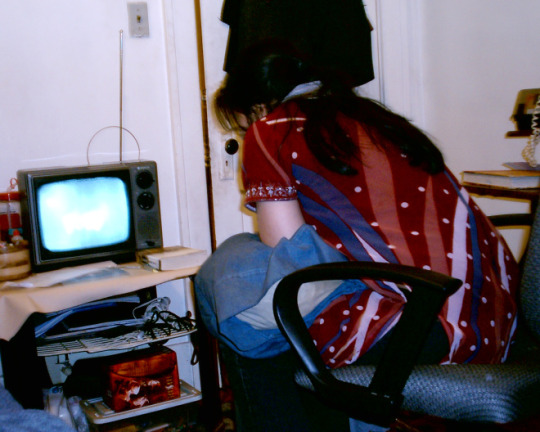
Studies have demonstrated that watching excessive amounts of TV has deleterious effects on physical and mental health. Binge-watching is an inherently sedentary activity that can lead to obesity, diabetes, and heart disease. It's also been connected to sore, tired eyes; insomnia or a reduction in quality sleep; depression; loneliness; and anxiety. To these studies, I would add my own observations and experiences: binge-watching contributes to anti-social behaviors, reduction of will power (often in the form of procrastination and dissolving of self-regulation), complacency (as individuals and citizens of a democratic society), and numbing of creativity. I also think it's correlated with binge-eating.
Despite these negative health effects, binge-watching is celebrated. We proudly declare our intention to binge-watch ("So excited for this series on Netflix; that's gonna be my weekend") and drop binge-watching into small talk ("I binge-watched all ten seasons in two weeks"). Companies encourage us to binge-watch, dumping thousands of hours of content onto their platforms each month, with 26-32 year olds subscribing to an average of three video streaming services. Internet and media giants are also banking on the epidemic, encouraging us to "binge on".
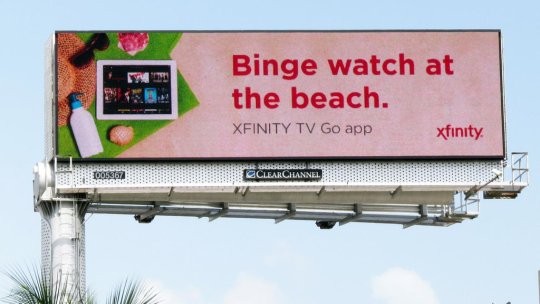
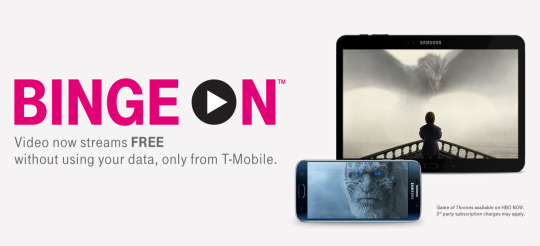
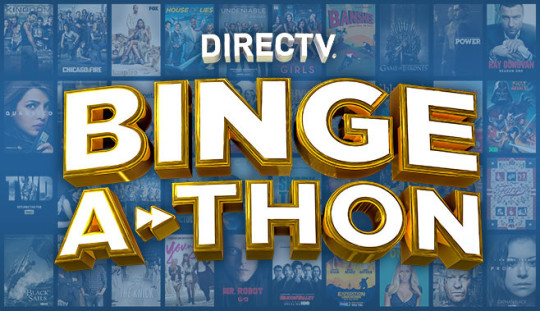
"Binge," a traditionally negative word that means to do something in excess, has become positive. Imagine if we were to treat binge-drinking or binge-eating the same way. Statements such as "My plans for the weekend are to binge drink" or "I was binge-drinking for two weeks straight" would never be socially acceptable; if anything, it would signal that there's a problem at hand, a person in need of an intervention. Yet, the same does not apply for binge-watching. Why?
I've come to justify it in a couple of different ways. We have been brainwashed to think TV is a "relaxing" activity worthy of excess. When this rationale fails and I dare to acknowledge binge-watching as a problem, I think, "Who am I harming?" This harming-no-one mentality clearly excludes myself, but knowing that I am not harming others makes it acceptable (the same logic does not apply to binge-eating, however, but that has more to do with sizeism and is out of the purview of this post). But at the end of a "binge-a-thon" when I'm left with anger (at myself, at the world, at life), emptiness, dissatisfaction, and depression, I have to face the reality: I, along with 70% of Americans, have an addiction problem.
So, what does an addict (and a society of addicts) have to do to recover? If we treat binge-watching the same way we treat alcoholism, then we might get to a healthy medium. As a society, we need to stop glorifying binge-watching and stop marketing campaigns that encourage this behavior. Streaming services need to do more than flash "Are you still watching?" signs. Perhaps they should flash a warning, informing people of the negative effects of binge-watching. App developers could design an app that allows viewers to set their own limits within a 24-hour period, which if reached, blocks access to the subscription service.
As individuals, we need to define for ourselves what healthy relationship to TV looks like. I have tried curbing my binge-watching only to come to the realization that going cold-turkey is probably the only way for me. Much like an alcoholic, there is no middle ground, no one-drink limit. I am either on the wagon or off.
Once we define a healthy relationship, we can employ some of the following strategies to stay healthy:
Exercise mindfulness. Binge-watching numbs us, allows us to disconnect and disregard our surroundings and circumstances. One way to re-engage is to exercise mindfulness. Practice pausing and looking around the room. Take in the details. Even a few seconds of this can shift us out of autopilot.
Turn off autoplay. This will help with exercising mindfulness.
Practice positive affirmations, such as "I release the need to binge-watch television." Positive affirmations can help reprogram the brain.
Create a check-list of things you can do instead of binge-watching, and then do it. This check-list can include things like: close your eyes, breathe, count to ten, and repeat three times; call a friend; get up and drink a glass of water; stretch. Do these things after pausing the video (if the video is playing, you won't be mindful and these strategies won't work).
Keep a list of changes you notice when not binge-watching TV. You might notice that you have more energy or you feel more focused. Reading this list later can also help keep you on track.
Dive deep and examine the real reasons for binge-watching. Binge-watching fulfills a need, feeds a fear. Examine these reasons closely. What challenge is being avoided? What feelings are not felt? What is being delayed, pushed out, or missed?
Watch out for harder-to-track replacements, such as excessive social media usage or shorter videos (the YouTube spiral). Sometimes, one addiction can be replaced with another. Stay alert to these changes.
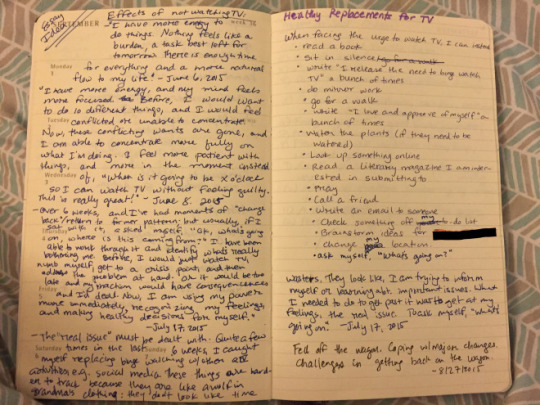
One study on binge-watching has found that an hour of TV can shorten life by 22 minutes. From where I'm standing, that's a scary finding and one that warrants considerable consideration. How much life are we willing to lose? As for me, my journey has started anew: today is day one of no-binging. Hopefully tomorrow leads to equal success.
0 notes